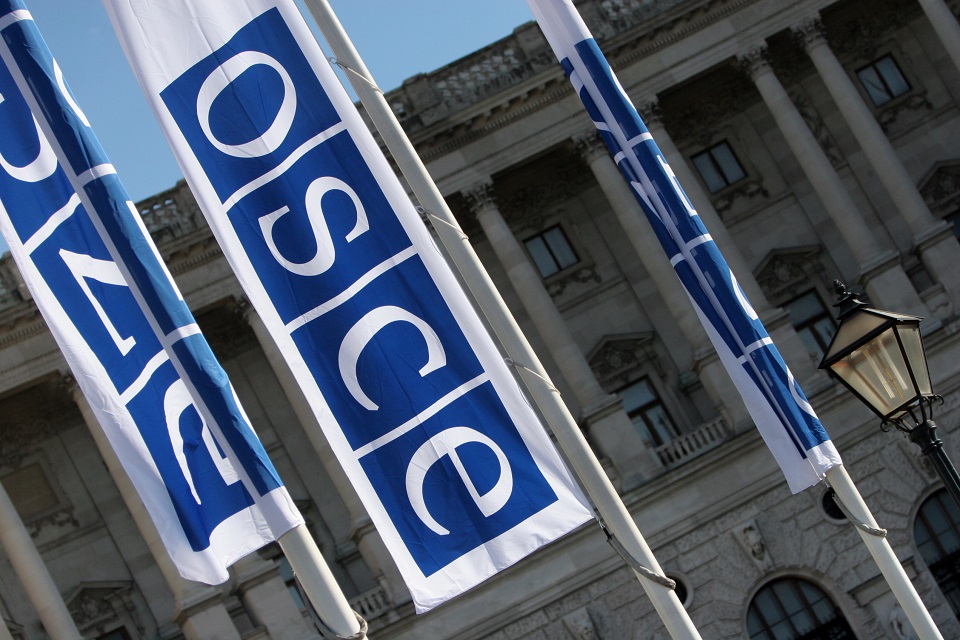Recent developments in Belarus: UK statement, 29 July 2021
Ambassador Neil Bush again condemns systematic state-led human rights violations in Belarus following its fraudulent Presidential election in August 2020.

Thank you Madam Chair, as the anniversary of the fraudulent August 2020 Presidential election approaches, we reflect with profound regret that the crisis in Belarus spirals ever further towards a never-ending black hole of systematic and relentless state-led human rights violations.
Let us remind ourselves of what took place nearly 12 months ago. Belarus held Presidential elections on 9 August 2020. There is a wealth of evidence to show that the Belarusian authorities contrived to manipulate the processes of that election to ensure Aleksander Lukashenko retained his grip on the power he has held since 1994.
As a consequence, tens of thousands of courageous Belarusians took to the streets in peaceful protest to voice their right to determine how they are governed. The response from Lukashenko’s regime was to launch a brutal and sustained crackdown against peaceful protestors, democratic opposition leaders and supporters, independent media and journalists, and civil society. A assault on democratic principles and the rule of law continues to this day.
Nearly 12 months on there are nearly 600 political prisoners in Belarus, according to human rights organisations. Thousands of criminal cases have been brought for violating the procedure for holding mass events and protests. Arbitrary arrest has continued and prisoners report that conditions in detention centres include the horrors of torture, inhumane treatment and degrading conditions. And there have been systematic attempts to extinguish civil society and independent media.
There are no signs from the authorities that they intend to de-escalate the situation. In fact, in the past few weeks, security forces have stepped up their measures. We have witnessed non-governmental organisations and non-state media being systematically targeted across the country. Over 40 journalists and NGO employees have been detained in the past 3 weeks alone with five of them still remaining in custody facing criminal charges. Bank accounts have been frozen and the websites of independent news portals blocked.
The Ministry of Justice and the Minsk City Executive Authority have set in motion plans to administratively liquidate over 50 NGOs that have been working tirelessly to preserve and promote human rights, disability support, as well as cultural, educational, ecological and independent media initiatives. This cold, methodical approach to crush any opposing view amounts to nothing short of a purge – a term recently used by Lukashenko himself.
Madam Chair, civil society and independent media are key for democracy and should be able to grow and flourish in line with our OSCE principles and commitments; and their advocates should be free from the threat of arrest. Civil society groups should be allowed to work in engaging the most marginalised people. It should not be illegal for civil society groups to carry out their essential and trusted role in developing and protecting democracy and upholding human rights and the rule of law.
Over the last 12 months there have been continued reports, including from Professor Wolfgang Benedek, the UN Special Rapporteur on Belarus, and the UN High Commissioner for Human Rights, which describe a “systematic crackdown against dissent”, “hundreds of allegations of torture and mistreatment” and an assault against fundamental rights and freedoms “of an unprecedented dimension in the country’s history.”
Not only for what happened 12 months ago and what has been happening over the previous year, but also for what continues to take place in Belarus - I urge all members of this Permanent Council to condemn such appalling violations of even the most basic human rights. To call upon the Belarusian authorities to change its corrosive course; release political prisoners; engage with the recommendations in the Moscow Mechanism report; open dialogue with civic society and the opposition; and enter into negotiations as a step towards resolving the crisis. That is the roadmap out for the Belarusian authorities.
Madam Chair, in these extraordinarily difficult times, the scale of the suffering of the Belarusian people cannot be overstated or ignored. We need to stand up as a Permanent Council to uphold our shared values and our shared OSCE commitments on human rights and democracy when we see such egregious challenge to it. And to support the Belarusian people.
Thank you.